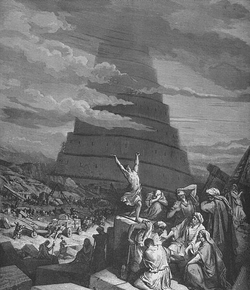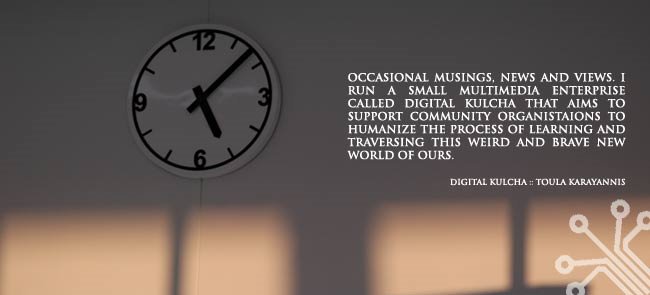 Last Thursday I was helping my precious nephew research the history of AFL (Australian Football League). Nothing unusual about that but the homework was for “Greek School”. A warm, fuzzy, multicultural glow buzzed. A few pointers on the inner workings of Google and he was out of the stalls and racing into research mania. Content discernment is not yet part of my nephew’s intellectual repertoire, so we discussed the relative merits of some of the sites he found. We finally decided on a piece. We ctrl+ceed, opened a word document and then closed the loop with ctrl+v.
Last Thursday I was helping my precious nephew research the history of AFL (Australian Football League). Nothing unusual about that but the homework was for “Greek School”. A warm, fuzzy, multicultural glow buzzed. A few pointers on the inner workings of Google and he was out of the stalls and racing into research mania. Content discernment is not yet part of my nephew’s intellectual repertoire, so we discussed the relative merits of some of the sites he found. We finally decided on a piece. We ctrl+ceed, opened a word document and then closed the loop with ctrl+v.What we had copied and pasted was written in English but we needed it in English. There in lay the rub. I let him ponder the tenacity of his formative Greek. As a teacher, my training taught me to give others the space to learn and that a little pain is always experienced when learning is about to appear. So when ‘that’ face of angst appeared I let him sit in it for awhile till he said, ‘Do you think we can translate it online?” Good question, beloved nephew. We then www-you-ed ourselves to babelfish.com. I gave him a brief tour of the site and how to use the tools. Easy (well as easy as the thorny road of online translations go).
Then I asked him if he knew the story of Babel. He didn’t, so I told him my version of it. 1. A one languaged humanity built a tower to reach the sky because in their hearts they felt that they were like God. 2. God thought this a humanly arrogance and smote them down by confusing their language and making everybody speak a different language. Since then my imaginings have been full of biblical stories. An odd preoccupation for a cynical and lapsed Greek Orthodox.
My nephew is of Greek and Assyrian decent. He currently has an aunt and uncle ‘holidaying’ in Lebanon. Images of desperate, bewildered fleeing people smear our screens in relentless ‘news updates’. I ring my sister often for news and it is the same “they are still there” and we wonder if they know of the severity of the crisis.
In a hall of emotional mirrors where I see everything and nothing at the same time, helplessness moves in and settles in the bones. It sucks greedily on the marrow till it threatens to vaporize my already fragile equilibrium. As an antidote I take a Google pill and look up the meaning of the word.
Helplessness: powerlessness revealed by an inability to act; the state of needing help from something; feeling of being unable to manage. Then I look up the tangential suggestion “learned helplessness”.
Learned helplessness: A tendency to be a passive learner who depends on others for decisions and guidance; A condition in which a person attempts to establish and maintain contact with another by adopting a helpless, powerless stance; with repeated exposure to inescapable aversive events, the person or animal learns that escape is impossible. In subsequent circumstances where escape or avoidance is possible, no attempt is made. The principle has been applied to understanding the origins of depression; a term initially used in experimental psychology, is a description of the effect of inescapable negative reinforcement (such as electrical shock) on animal (and by extension, human) behavior.
As a lay linguist I believe we can unravel many psychological quandaries by etymological explorations. I also believe in describing and addressing a malaise of my psyche and soul, I need to mesh, mash, meld as many definitions of a term as I can in order to get as close as is humanly possible to the essence of an essentially wordless state.
As a young feisty Greek-Australian-Feminist woman I had the passion, stamina and chutzpah (naivety?) to be intimately involved in what I saw as my part in changing the world. I was man-handled by the constabulary (and subsequently thrown back in the crowd like a minnow, I have the picture that appeared in London’s Newsweek to prove it), made my Greek immigrant relatives despair at my ‘dangerous’ & ‘useless’ antics (did they know something I didn’t know?). Today at the age of 45 I look back at that young woman and wonder where she got the courage, the passion and the sheer energy to stand up to seemingly omnipotent power-moguls. Although I still turn up to march on the streets, I turn up less and less. Is this a problem of middle-age or of world malaise? Has the bloodlust of the world cast babel-like shards of anarchy? Is this world cannibalism necessary to anoint a future peace with the blood of innocents?
“You have to be the change you want to see” said Mahatma Ghandi. If this is so, Gods of all persuasion please help us all to find “?????insert nameless something here????”.


No comments:
Post a Comment